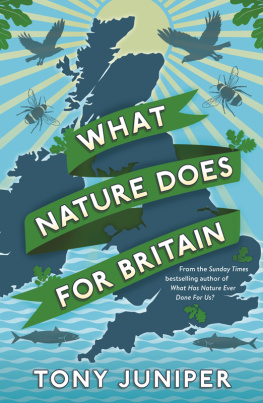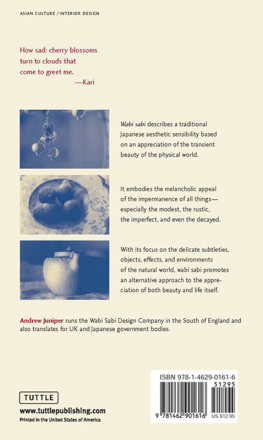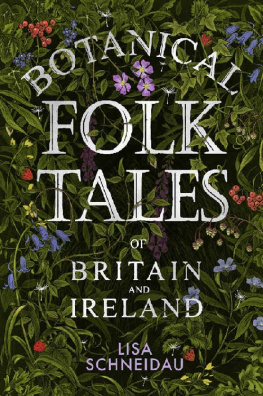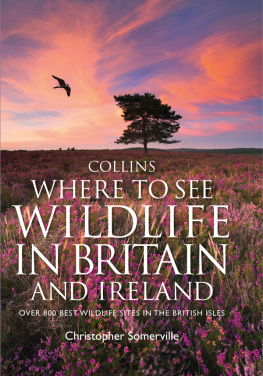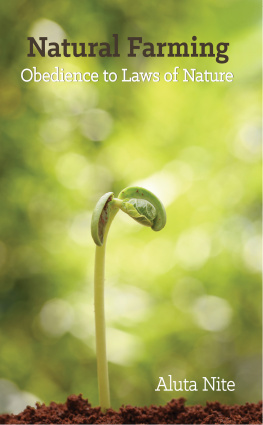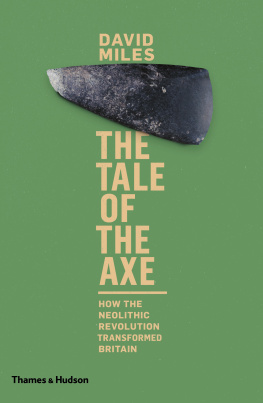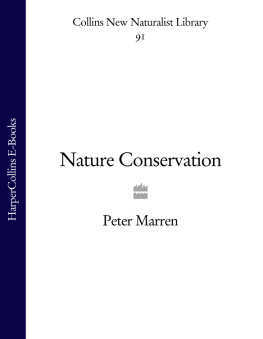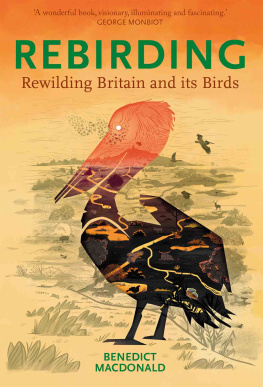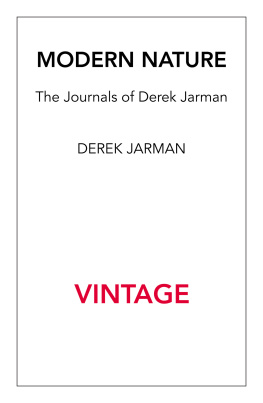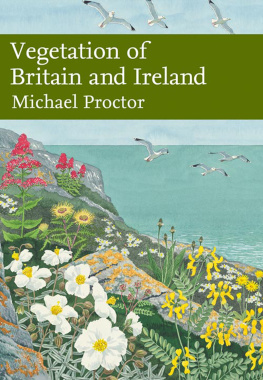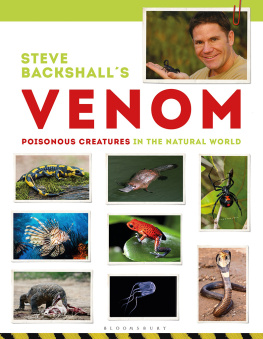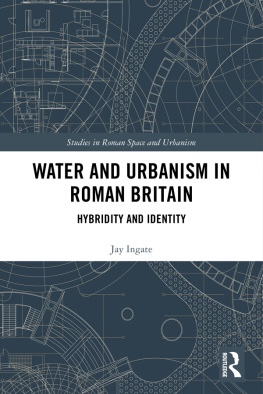What Nature Does for Britain
Tony Juniper

TONY JUNIPER is Britains best known environmental campaigner, and a former director of Friends of the Earth. He is the author of several books including What Has Nature Ever Done For Us?, Saving Planet Earth (which accompanied the BBC TV series) and Spixs Macaw.
First published in the UK in January 2015 by
Profile Books
3 Holford Yard, Bevin Way
London WC1X 9HD
What Nature Does For Britain Tony Juniper, 2015
The moral right of the author has been asserted.
All rights reserved. No part of this book may be reproduced in any form without permission from the publisher except for the quotation of brief passages in reviews.
10 9 8 7 6 5 4 3 2 1
Photo credits
p.i: Ty Canol wood, Pembrokeshire ( Tony Juniper); p.iv Rutland ospreys ( John Wright, Leicestershire and Rutland Wildlife Trust); p.6 Satellite image of Britain (NASA); p.36 Bumblebee ( Gillian Day/The Wildlife Trusts); p.62 Bluefin tuna (Living Seas/The Wildlife Trusts, courtesy Mark Mitchell-Henry); p.80 Burning moors ( Mark Hamblin/Oxford Scientific/Getty Images); p.108 Beaver ( Steve Gardner/Scottish Wildlife Trust), Cley flood ( Marcus Nash/The Bird ID Company); p.140 Mountain hare ( Mark Hamblin/Oxford Scientific/Getty Images); p.168 Offshore wind turbine ( Renewable UK), Swansea Tidal Lagoon ( LDA Design); p.200 River Itchen ( Linda Pitkin/Nature Picture Library), Alder Hey (Alder Hey Childrens NHS Foundation Trust/Laing ORourke); p.230 National Forest (Christopher Beech, top; 2020VISION/Ross Hoddinott, bottom).
A catalogue record for this book is available from the British Library.
eISBN 978 178283 0986
What Nature Does for Britain
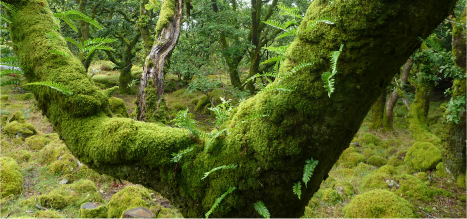
Tony Juniper
ADDITIONAL RESEARCH BY
Lucy McRobert

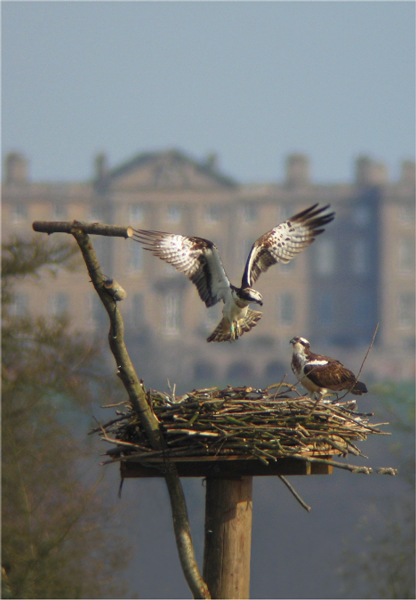
The Rutland ospreys a national asset.
Preface
What Nature Does For Britain
Money is no object in this relief effort.
Whatever money is needed, we will spend it.
Those were the Prime Ministers words: a promise of open-ended spending, at the height of economic austerity, in response to the widespread flood damage of 2014. It was not surprising, of course, given the terrible circumstances facing thousands of people across the country, whose homes and businesses had been inundated with stinking muddy water. But research suggests that reacting to flooding in this way throwing money at cleaning up the mess after the event is the least rational and most expensive way to go. It would be better by far to see the bigger picture how the changing climate is likely to cause more such events in future and prepare for that in far more intelligent ways, including rebuilding what might be called green infrastructure. That is, restoring the natural systems that provide so many valuable services, including some level of protection from flooding.
Yet despite a mounting body of evidence to show how we can save money, protect property, promote wellbeing and create more value through looking after nature, there is a widespread view that doing so is somehow hostile to Britains interests. You hear it from politicians, economists and columnists, and most notoriously from David Cameron himself, who is said to have told his aides to get rid of all the green crap only four years after promising to lead the greenest government ever.
The fact that so many people seem to accept this line of thinking that the protection of nature is harmful to people and the economy is the reason for this book. On the eve of a general election in the UK, I will set out to show that rather than being a barrier to progress, Britains nature is an economic and security asset with enormous social value. At the end of each chapter I will offer proposals that I believe would help the recovery of nature in Britain and in so doing help the economy and people. I have put these in the form of manifesto points and I offer them freely to all of our politicians to adopt. My hope is that these ideas will inspire some of our elected representatives to see what can be done in making sure Britains nature retains its value in the decades ahead.
In the pages that follow Ill take you on a journey around Britain. But not through the familiar political landscapes. We are going instead to the real Britain, the one where we are supported by nature, wildlife and natural systems at almost every turn. Well look at the countrys flood defences, for example. Not the costly man-made ones but the ones that nature endowed us with, and which can be protected or revived for modest sums: soils and wetlands, renaturalised rivers and coastal marshes among them. These and other natural assets, properly maintained, can hold more water in the environment and reduce the risk of floods.
Well visit places where the protection of natural habitats can also provide a cleaner, cheaper water supply. Bogs, woods and marshes strip out sediments and pollution, meaning that less high-tech equipment is needed to clean it up before being piped to the public. From the wild blanket bogs of Northern Ireland to the arable farmlands of southern England well see how looking after nature can support our water security, and in highly cost-effective ways.
Well take a look beneath our feet, too, at one of the least appreciated aspects of our natural heritage, namely healthy soils. These help to purify water and reduce flooding and are a massive store of carbon, which if kept intact and enhanced can make a big contribution to Britains efforts to combat climate change. Woodlands, wetlands and dune habitats are similarly locking up carbon and keeping it out of the air, at the same time as providing a range of other important services.
Those same soils that hold carbon and water are also, of course, the source of most of our food, supporting jobs and presenting a wide range of economic opportunities. Well see why its rational to keep those soils in good health, and how that in turn improves the quality of our rivers and seas, enhancing recreation and tourism. We will observe how our food security is also enhanced by wildlife, including the hundreds of species of native bees that live in Britain and the host of spiders, beetles, bats, birds and other predators that help to control pests.
The oceans that surround our country are also a source of food, jobs and economic opportunity, not least through the billions of pounds-worth of seafood we take each year. They are under threat from poor political management, but not without hope, if among other things we scale up the positive examples of fishermen boosting their incomes by using better and more sustainable fishing methods.
Well see how despite becoming ever more used to seeing our nutritional security through long-distance global food-supply chains, for most of our food we remain fundamentally dependent on nature here in the UK whether its the plankton-fuelled food chains that supply seafood, the intricate ecological relationships that enable soils to recycle nutrients, or the 140-million-year-long partnership between insects and flowering plants and natures predator and prey struggles. Wildlife remains essential, even for the majority of us who live in Britains cities, in providing much of what we eat. And the foods we get from the sea and with the help of pollinators fruit, vegetables and fish include the healthiest dietary choices we can make.
Next page
